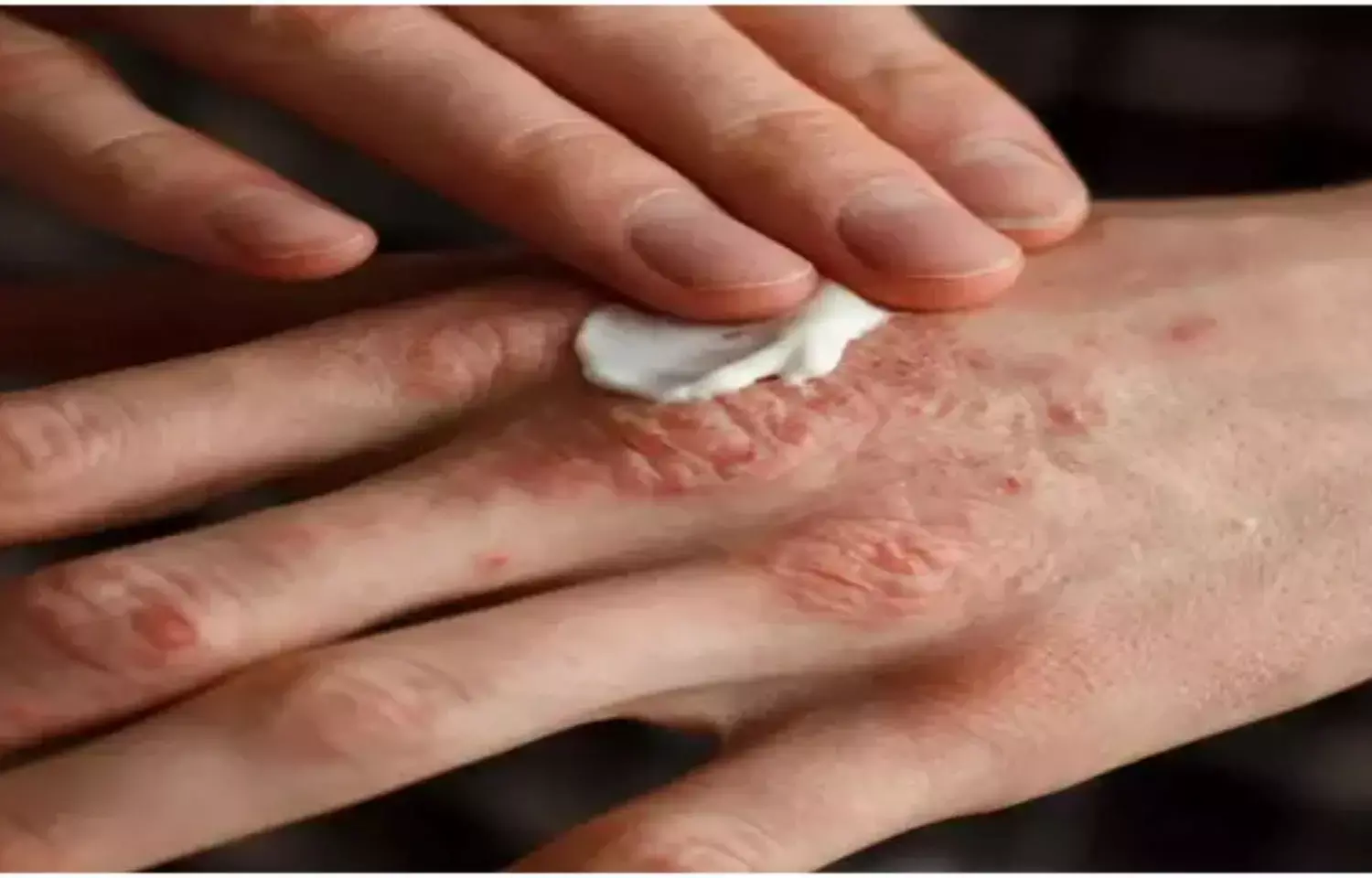- Home
- Medical news & Guidelines
- Anesthesiology
- Cardiology and CTVS
- Critical Care
- Dentistry
- Dermatology
- Diabetes and Endocrinology
- ENT
- Gastroenterology
- Medicine
- Nephrology
- Neurology
- Obstretics-Gynaecology
- Oncology
- Ophthalmology
- Orthopaedics
- Pediatrics-Neonatology
- Psychiatry
- Pulmonology
- Radiology
- Surgery
- Urology
- Laboratory Medicine
- Diet
- Nursing
- Paramedical
- Physiotherapy
- Health news
- Fact Check
- Bone Health Fact Check
- Brain Health Fact Check
- Cancer Related Fact Check
- Child Care Fact Check
- Dental and oral health fact check
- Diabetes and metabolic health fact check
- Diet and Nutrition Fact Check
- Eye and ENT Care Fact Check
- Fitness fact check
- Gut health fact check
- Heart health fact check
- Kidney health fact check
- Medical education fact check
- Men's health fact check
- Respiratory fact check
- Skin and hair care fact check
- Vaccine and Immunization fact check
- Women's health fact check
- AYUSH
- State News
- Andaman and Nicobar Islands
- Andhra Pradesh
- Arunachal Pradesh
- Assam
- Bihar
- Chandigarh
- Chattisgarh
- Dadra and Nagar Haveli
- Daman and Diu
- Delhi
- Goa
- Gujarat
- Haryana
- Himachal Pradesh
- Jammu & Kashmir
- Jharkhand
- Karnataka
- Kerala
- Ladakh
- Lakshadweep
- Madhya Pradesh
- Maharashtra
- Manipur
- Meghalaya
- Mizoram
- Nagaland
- Odisha
- Puducherry
- Punjab
- Rajasthan
- Sikkim
- Tamil Nadu
- Telangana
- Tripura
- Uttar Pradesh
- Uttrakhand
- West Bengal
- Medical Education
- Industry
Systemic glucocorticoids use safe for patients with psoriasis: Study

Netherlands: Systemic glucocorticoids (SGCs) exposure does not increase the risk of occurrence of psoriatic flares in psoriasis and psoriatic arthritis (PsA) patients, shows study data published in the Rheumatology. The use of SGCs should be considered in patients with a clear indication for SGCs.
In routine practice, prescribing SGCs is common for patients with PsA. SGCs can provide rapid anti-inflammatory effects, relieve pain, and improve the skin condition, thus improving quality of life and reducing disease burden in patients. However, the use of SGCs is traditionally discouraged for patients with psoriasis and PsA because of a perceived risk of skin flaring. However, despite this recommendation, SGCs are frequently prescribed for these patients
Nanette L, University Medical Center Utrecht, Netherlands, and colleagues conducted a review to reevaluate the old Philosophy of contra-indicating SGCs in the treatment of PsA and psoriasis and to explore the actual frequency with which clinicians prescribe SGC for the PsA and psoriasis populations and assess the occurrence of skin flares.
A systematic search of MEDLINE, EMBASE, and the Cochrane Library databases was performed in November 2019 to identify articles on any SGC use compared with no use in the PsA and psoriasis population. Researchers excluded topical glucocorticoid treatment. Primary outcomes focused on the prescribing characteristics and the occurrence of any type of flare. The search yielded 4922 articles, and of these 21 full-text articles were eligible for inclusion.
Key findings of the study,
• There were 11 retro- and prospective cohorts involving a total of 4,171,307 patients.
• 6727 (37.82%) of the patients with PsA and 1 460 793 (35.17%) of the patients with psoriasis were treated with any type of SGC.
• Ten observational/interventional studies did not report an increased risk or occurrence of psoriatic flares related to the use of SGC.
Researchers conclude that SGCs are frequently prescribed medications for PsA and psoriasis patients. The occurrence of psoriatic flares appears to be low upon SGC exposure.
In patients with a clear indication for SGCs, e.g. in need of rapid anti-inflammatory therapy or bridging of therapies, the use of SGCs should be considered because of the low risk of skin flares.
In clinical decision-making, it is crucial to weigh risks for short- and long-term SGC-related side effects, the authors commented.
Heading---Risk of Skin Flares, Not Increased with use of Systemic Glucocorticoids in psoriatic arthritis and psoriasis, Study
Reference:
Nanette L A Vincken, Deepak M W Balak, André C Knulst, Paco M J Welsing, Jacob M van Laar. Rheumatology, keac129, https://doi.org/10.1093/rheumatology/keac129
BDS
Dr. Hiral patel (BDS) has completed BDS from Gujarat University, Baroda. She has worked in private dental steup for 8years and is currently a consulting general dentist in mumbai. She has recently completed her advanced PG diploma in clinical research and pharmacovigilance. She is passionate about writing and loves to read, analyses and write informative medical content for readers. She can be contacted at editorial@medicaldialogues.in.
Dr Kamal Kant Kohli-MBBS, DTCD- a chest specialist with more than 30 years of practice and a flair for writing clinical articles, Dr Kamal Kant Kohli joined Medical Dialogues as a Chief Editor of Medical News. Besides writing articles, as an editor, he proofreads and verifies all the medical content published on Medical Dialogues including those coming from journals, studies,medical conferences,guidelines etc. Email: drkohli@medicaldialogues.in. Contact no. 011-43720751


